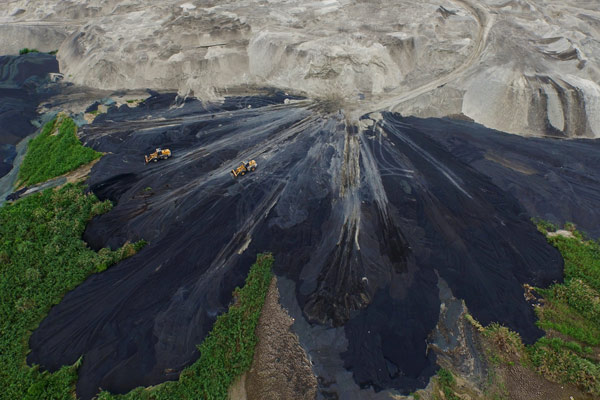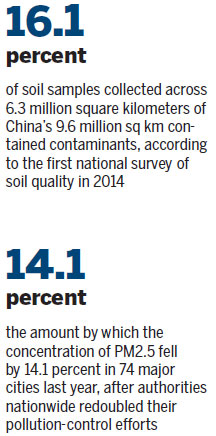China vows to root out soil pollution
Updated: 2016-03-18 08:07
By Zheng Jinran(China Daily)
|
||||||||
Threats posed by air and water pollution have often overshadowed the nation's contaminated farmland, but now the government has made the first moves to tackle a hidden killer. Zheng Jinran reports.
China has widened the scope of its anti-pollution efforts to include soil pollution for the first time.
A specific plan of action for the prevention and control of soil pollution will come into force during the period of the 13th Five-Year Plan (2016-20), and the nation's first specific national law on the control and prevention of soil pollution is being drafted by the Ministry of Environmental Protection.
"The draft will be submitted to the Standing Committee of the National People's Congress for discussion in 2017, and placed on the legislative agenda," said Yuan Si, deputy director of the NPC's environmental protection and resources conservation committee, speaking at a media briefing about the legislation on March 10.
Although China already has legislation covering air and water pollution, there is no law to prevent soil pollution, let alone any comprehensive and practical legal specifications, he said.
The first national survey of soil quality, jointly conducted by the ministries of environmental protection and land and resources in April 2014, revealed the gravity of the situation.
Contaminants were discovered in more than 16 percent of soil samples collected across 6.3 million square kilometers of China's 9.6 million sqm, and farmland was found to have been hit particularly badly. The situation was far worse in the southern regions than in the north, and the levels contamination in major industrial zones, such as the Yangtze River Delta, the Pearl River Delta and the Northeast of the country, were higher than the national average.
Soil pollution can affect food safety, people's standards of living and the country's sustainable development. That means legislative support, for regulations similar to the regulations already in place to control and reduce air and water pollution, is urgently needed, Yuan said.
Chen Jining, minister of environmental protection, said the legislative process will be backed up by the Action Plan on Soil Pollution Prevention and Control, a national campaign targeting soil pollution, which is expected to be launched this year.
Speaking at a March 11 media briefing to introduce new measures to control air, water and soil pollution, Chen said the program took longer than expected to prepare, partly because of poor basic information about soil pollution.
"But we have introduced pilot programs to control soil pollution and restore quality in 10 provinces, and improved the warning systems in regions badly affected by heavy-metal pollution," he said.

 These university canteen dishes will blow your mind
These university canteen dishes will blow your mind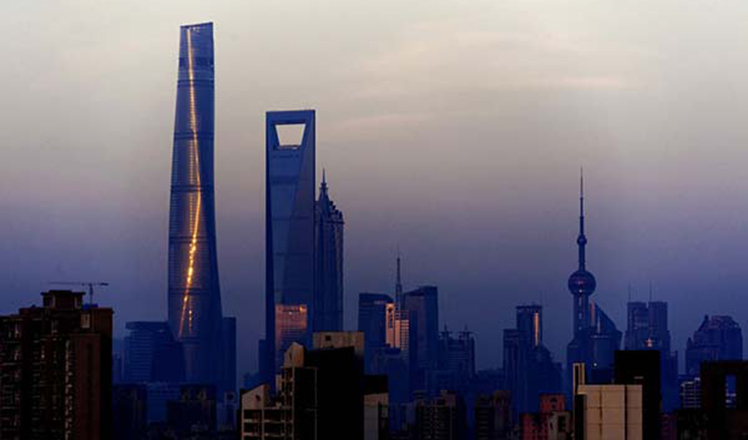
 Eslite bookstore story reads like a page-turner
Eslite bookstore story reads like a page-turner
 World's biggest computer and software fair kicks off in Germany
World's biggest computer and software fair kicks off in Germany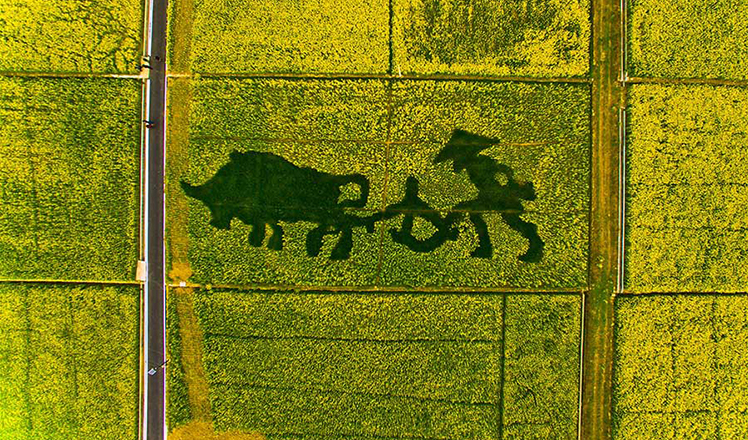
 Aerial view of cole flower fields presents unique pastoral charm
Aerial view of cole flower fields presents unique pastoral charm
 Largest blue diamond to appear at auction
Largest blue diamond to appear at auction
 Journalists from around the world at Li's news conference
Journalists from around the world at Li's news conference
 Google's AlphaGo defeats Go grandmaster
Google's AlphaGo defeats Go grandmaster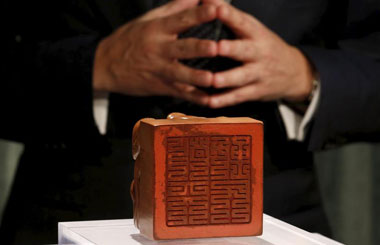
 Emperor's seal set for auction in Hong Kong
Emperor's seal set for auction in Hong Kong
Most Viewed
Editor's Picks

|

|

|

|

|

|
Today's Top News
Chinese biopharma debuts on Nasdaq
What ends Jeb Bush's White House hopes
Investigation for Nicolas's campaign
Will US-ASEAN meeting be good for region?
Accentuate the positive in Sino-US relations
Dangerous games on peninsula will have no winner
National Art Museum showing 400 puppets in new exhibition
Finest Chinese porcelains expected to fetch over $28 million
US Weekly

|

|
